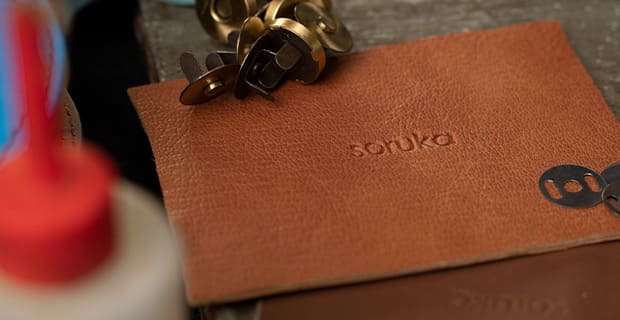In today’s world, fast fashion dominates the clothing industry, but at what cost? This model, based on quick and cheap production, leads to significant environmental and ethical issues. This article aims to dissect the fast fashion industry, examining its repercussions on our environment and introducing sustainable alternatives, with a spotlight on Soruka’s recycled leather products.
The True Cost
Fast fashion is a term that defines the rapid production of inexpensive clothing, aligning with the latest trends. This model is unsustainable: it relies heavily on outsourced, low-paid labor, often in poor working conditions. Additionally, the environmental impact is enormous. The production of these garments consumes vast amounts of water and energy, and the use of harmful chemicals is rampant. What’s worse, these clothes, often made of synthetic materials, end up in landfills, contributing to an ever-growing waste problem.
The Environmental Toll of Fast Fashion
The ecological footprint of fast fashion is alarming. The industry is one of the largest consumers of water globally and a significant contributor to greenhouse gases. The disposable nature of fast fashion items means they are quickly discarded, leading to staggering amounts of textile waste. This cycle of consumption and disposal is unsustainable and poses a grave threat to our planet.
Soruka’s Response: A Commitment to Sustainable Fashion
In response to the fast fashion crisis, we’ve observed a growing demand for sustainable fashion. Soruka stands out in this field with its recycled leather bags and wallets. By repurposing leather scraps, Soruka is reducing waste and championing the slow fashion movement. We advocate for a more thoughtful approach to fashion, emphasizing quality, longevity, and ethical production practices.
Breaking the Fast Fashion Cycle
We are actively contributing to breaking the cycle of fast fashion. Our approach emphasizes the importance of recycling and reusing materials, reducing the demand for new resources, and minimizing environmental impact. By choosing Soruka, consumers are not just purchasing a product; they are taking a stand against the harmful practices of the fast fashion industry.
Sustainable Fashion and Consumer Responsibility
The rise of brands like Soruka highlights a critical shift in the fashion industry towards sustainability. However, it’s not just about the brands; it’s also about consumer choices. By opting for sustainable and ethical fashion, consumers can drive change in the industry. Each purchase is a vote for the type of world we want to live in.
The Time for Sustainable Fashion is Now and Always
The need for sustainable alternatives in the fashion industry is clear. The fast fashion model is not only unsustainable but also unethical. We try to lead the charge in creating a more sustainable future, but we can’t do it alone. It’s up to consumers to make responsible choices and support brands that prioritize the planet and its people. The time for change is now, and it starts with us.
As we move forward, let’s choose brands that align with our values and advocate for a fashion industry that respects both people and the planet.


